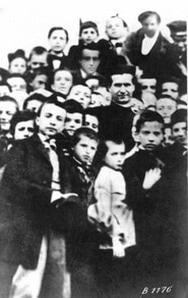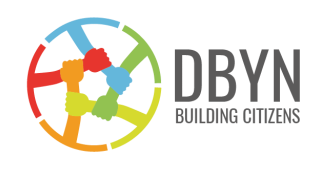|
In his article “The saint, the poet, the lord and the cardinal” written for the first European Youth work convention in 2010, Filip Couseé introduces Don Bosco as follows:
|

Torino, Italy, 1841: the priest Giovanni Bosco was concerned about the social distress of his time. The industrial revolution went hand in hand with proletarianisation and very often the exploitation of the emerging working class. Other developments connected to these drastic shifts in the organisation of society were urbanisation, migration to the cities, social fragmentation and increasing poverty.
Bosco’s attention was primarily focused on the situation of working class children who were out of work or too young to work. Often their parents spent 14 hours a day and even more in a factory. The kids stayed at home by themselves or hung about a bit and wandered the streets. Father Giovanni transformed his confirmation classes into an alternative youth care practice. Young people could come to what later was named the ‘Oratorium’. They found a warm place and could experience a sense of freedom and belonging and enjoy a basic form of education.
What began as a rather small-scaled social work initiative grew into a youth centre visited by over 500 young people. The method spread around Europe and became better known in different countries as ‘the patronage’. At the heart of the patronage we find the typical pedagogical paradox: protecting young people from ‘evil’ society while promoting their social participation. In his work with children and young people Giovanni Bosco introduced pedagogical and methodical elements which we still recognise as essential parts of the current youth work identity. Don Bosco started where young people were, taking their lives as the starting point. He created a climate of recreation and confidence. He made an appeal to educated young people to help him, assuming that young people themselves were good and credible guides for their peers. Above all, he made an appeal for society to take responsibility for the education of its children. His argument was a preventive one. In his view all social problems could be traced back to educational problems. It sounds very relevant to our times: invest in young people and empower them and you will prevent problems.
COUSSEÉ, F., The saint, the poet, the lord and the cardinal, Coyote extra, July 2010, pp.10-11.
Bosco’s attention was primarily focused on the situation of working class children who were out of work or too young to work. Often their parents spent 14 hours a day and even more in a factory. The kids stayed at home by themselves or hung about a bit and wandered the streets. Father Giovanni transformed his confirmation classes into an alternative youth care practice. Young people could come to what later was named the ‘Oratorium’. They found a warm place and could experience a sense of freedom and belonging and enjoy a basic form of education.
What began as a rather small-scaled social work initiative grew into a youth centre visited by over 500 young people. The method spread around Europe and became better known in different countries as ‘the patronage’. At the heart of the patronage we find the typical pedagogical paradox: protecting young people from ‘evil’ society while promoting their social participation. In his work with children and young people Giovanni Bosco introduced pedagogical and methodical elements which we still recognise as essential parts of the current youth work identity. Don Bosco started where young people were, taking their lives as the starting point. He created a climate of recreation and confidence. He made an appeal to educated young people to help him, assuming that young people themselves were good and credible guides for their peers. Above all, he made an appeal for society to take responsibility for the education of its children. His argument was a preventive one. In his view all social problems could be traced back to educational problems. It sounds very relevant to our times: invest in young people and empower them and you will prevent problems.
COUSSEÉ, F., The saint, the poet, the lord and the cardinal, Coyote extra, July 2010, pp.10-11.

